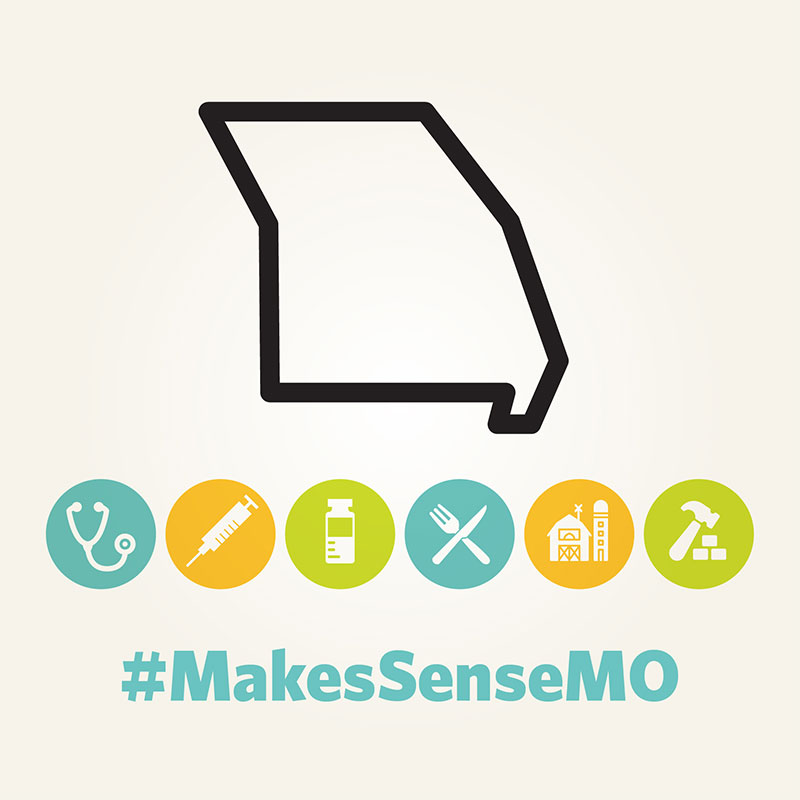
The COVID-19 pandemic has had a devastating impact on the nation and the state of Missouri. As of June 9, there have been more than 15,000 cases of COVID-19 and 800+ deaths in our state. The economic fallout has been widespread as well, with more than 500,000 Missourians filing for unemployment since March and the state unemployment rate rising to almost 10%.
For many, the loss of a job also means the loss of health insurance. In Missouri, where nearly one in 10 residents were uninsured before the pandemic – a rate higher than in the nation as a whole and much higher than most of our surrounding states – tens of thousands of additional people have likely lost their health insurance along with their jobs. Many of them will have few options for finding coverage. At a time when having ready access to health care services could mean the difference between life and death, or spreading the disease to others, those without insurance are less likely to receive care due to the cost.
This problem will be far worse in states, like Missouri, that have not expanded their Medicaid programs. The Urban Institute estimates that more than 40% of those who lose their jobs in non-expansion states will join the ranks of the uninsured. In contrast, in states that have embraced Medicaid expansion, less than a quarter of the newly unemployed will also become uninsured. These differences are likely to result in more disease, more disability, and more death in Missouri and other non-expansion states.
The benefits of Medicaid expansion go far beyond issues of health and health insurance. At a time of economic hardship, high unemployment, and state budget cuts, expansion will inject more than a billion dollars per year into the Missouri economy, creating jobs, increasing economic output, and adding to personal income.
A new study commissioned by Missouri Foundation for Health and conducted by Regional Economic Models, Inc. (REMI) underlines these points. Using well accepted economic modeling methods and data based on the experience of other states, REMI projects that expansion in Missouri will create more than 16,000 new jobs per year, boost economic output by $2.5 billion, and increase personal income in the state by $1.1 billion, or more than $500 per household. These gains will be distributed across the state and across industries. Nearly nine in-10 of the new jobs will be “quality” jobs, paying more than $15 per hour.
Expansion will benefit the state budget as well. The federal government will pick up 90% of the cost of the program, bringing back Missouri’s tax dollars to be spent at home, rather than having those dollars be used in other expansion states such as California and New York. This generous federal match – far higher than the 65% the federal government picks up for the existing MO HealthNet program – will create budget savings that will more than offset the state’s 10% share. Add in the tax revenues generated by economic growth and new jobs, and Medicaid expansion could be a budget boon for the state. Analyses conducted by the Center for Health Economics and Policy at Washington University and Health Management Associates confirm these conclusions. Most notably, other states that have expanded their Medicaid programs have experienced the same budget savings and revenue gains that are predicted in Missouri.
Health insurance coverage is important during normal times. But during a pandemic that has sickened thousands and caused economic damage throughout the state, expanding Medicaid can simultaneously provide health insurance to 230,000 Missourians, create jobs, enhance the economy, and boost the state budget. Medicaid expansion is more urgent now than ever.
A vote to expand Medicaid in Missouri was recently pushed up to the primary election being held on August 4, 2020.
To learn more about Medicaid expansion in Missouri, visit MakesSenseMO.org.


